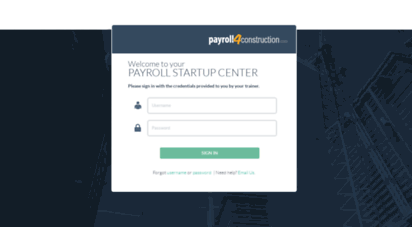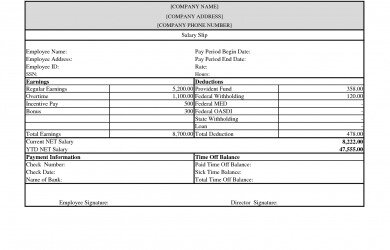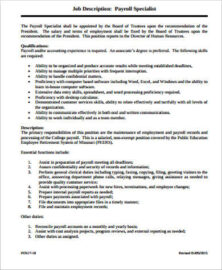
They provide insight into your company’s performance over time, revealing the areas you need to improve on. The three major financial reports that every business must know and understand are the cash flow statement, balance sheet, and income statement. Transactions include purchases, sales, receipts and payments by an individual person or an organization/corporation. There are several standard methods of bookkeeping, including the single-entry and double-entry bookkeeping systems.
- Costs, also known as the cost of goods sold, is all the money a business spends to buy or manufacture the goods or services it sells to its customers.
- These services include recording what money comes into and flows out of a business, such as payments from customers and payments made to vendors.
- As the function of accounting is typically more diverse than bookkeeping, hiring an accountant may allow you some flexibility.
- Intuit provides its employees with supplemental learning materials after training has been completed to assist employees in developing their skills.
- Depending on the type of accounting system used by the business, each financial transaction is recorded based on supporting documentation.
The bookkeeper is generally responsible for overseeing the first six steps of the Accounting Cycle, while the last two are typically taken care of by an accountant. While there is a general overlap between the two professions, there are a few distinctions that are later discussed in this article. The chart of accounts lists every account the business needs and should have. Our partners cannot pay us to guarantee favorable reviews of their products or services. We provide third-party links as a convenience and for informational purposes only.
It’s important to note that not all lenders and investors require certified or audited financial statements. However, it’s still a good idea to ask an accountant to review your bookkeeper’s financial statements for accuracy and completeness prior to submitting them to a third party for consideration. And even if you’re not looking for funding, consider asking an accountant to review your financial statements at least once a year. Only an accountant licensed to do so can prepare certified financial statements for lenders, buyers and investors.
Get a bookkeeping certification.
An important difference between a manual and an electronic accounting system is the former’s latency between the recording of a financial transaction and its posting in the relevant account. The double-entry system of bookkeeping oregonsaves retirement savings plan is common in accounting software programs like QuickBooks. With this method, bookkeepers record transactions under expense or income. Then they create a second entry to classify the transaction on the appropriate account.
Accounting Today publishes its 2023 Advisory Services Research Report – Yahoo Finance
Accounting Today publishes its 2023 Advisory Services Research Report.
Posted: Wed, 02 Aug 2023 13:00:00 GMT [source]
Accounting refers to methods of recording, summarizing, analyzing, and reporting financial transactions for an organization or business. Accountants analyze financial metrics to assist businesses with better decision-making. A bookkeeper is skilled at keeping documents and tracks a wide net of financial information. As an accountant, you must pay attention to figures and financial details, but it is more essential to possess sharp logic skills and big-picture problem-solving abilities.
Simply put, business entities rely on accurate and reliable bookkeeping for both internal and external users. This content is for information purposes only and should not be considered legal, accounting, or tax advice, or a substitute for obtaining such advice specific to your business. No assurance is given that the information is comprehensive in its coverage or that it is suitable in dealing with a customer’s particular situation.
How a Bookkeeper Is Different Than an Accountant
To become one, you have to either have worked at the IRS or pass an EA examination. Kelly is an SMB Editor specializing in starting and marketing new ventures. Before joining the team, she was a Content Producer at Fit Small Business where she served as an editor and strategist covering small business marketing content. She is a former Google Tech Entrepreneur and she holds an MSc in International Marketing from Edinburgh Napier University.

Typically, single entry bookkeeping is suitable for keeping track of cash, taxable income, and tax deductible expenses. Single-entry accounting records all of your transactions once, either as an expense or as income. This method is straightforward and suitable for smaller businesses that don’t have significant inventory or equipment involved in their finances. It doesn’t track the value of your business’s assets and liabilities as well as double-entry accounting does, though. A client’s financial activities will include all transactions related to their income and expenses and a bookkeeper is responsible for recording all of these transactions accurately.
Process
It is a foundational accounting process, and developing strategies to improve core areas of your business would be nearly impossible without it. Yet as important as bookkeeping is, implementing the wrong system for your company can cause challenges. Some companies can still use manual methods with physical diaries and paper journals. However, as technology gets more and more advanced, even smaller companies could get benefits from going digital. Zoho Books helps you keep accurate records of your business finances. It provides quicker and easier solutions for cash management, accounts payable/receivable, bank reconciliation, and generating financial statements.
Accounting, on the other hand, utilizes data from bookkeepers and is much more subjective. It is a financial report that tracks incoming and outgoing cash in your business. It allows you (and investors) to understand how well your company handles debt and expenses.
Business Line of Credit: Compare the Best Options
Intuit is dedicated to providing its employees with the ability to learn and grow throughout their time with our company. Once candidates are hired as employees, they will be provided with training assignments and other resources that prepare them for their positions. Intuit provides its employees with supplemental learning materials after training has been completed to assist employees in developing their skills. As more people move to working from home, freelancing, or starting their own businesses, you may want to learn how to become a virtual bookkeeper. A virtual bookkeeper must meet the same educational requirements as an in-house or in-person bookkeeper.
The cashier collects the cash for a sale and returns a balance amount to the customer. Both the collected cash and balance returned are recorded in the register as single-entry cash accounts. Cash registers also store transaction receipts, so you can easily record them in your sales journal. This guide will walk you through the different methods of bookkeeping, how entries are recorded, and the major financial statements involved. While there may be some concerns, the ascendance of AI doesn’t mean a downfall for human accountants. Rather, it liberates them from monotonous tasks, allowing them to pivot their attention toward more strategic functions like financial planning, business analysis and consultation services.

The entry system you choose impacts how you manage your finances and how your bookkeeping processes will work. Usually, the entry-level salary for both bookkeepers and accountants tends to be similar; however, the earning potential of an accountant tends to increase as their career progress. It is not uncommon for an experienced bookkeeper to make a career transition into accounting or another profession. As bookkeepers work closely with raw data, they tend to develop a good understanding of how a business works.
There are several actions that could trigger this block including submitting a certain word or phrase, a SQL command or malformed data. When it comes to blockchain technology, business leaders need to stay updated on its developments and potential implications. As regulatory issues clear up and adoption increases, early adoption could provide a competitive edge in terms of transparency and fraud prevention. The full promise of blockchain is yet to be fully harnessed, largely due to regulatory ambiguities and its still early stage of adoption. However, the potential of this technology to revolutionize the accounting industry cannot be denied and deserves close monitoring. Business leaders can take advantage of these shifts in the accounting sector by embracing innovation and automated processes.
Accounting software eliminates a good deal of manual data entry, making it entirely possible to do your own bookkeeping. However, it can be difficult to catch up if you fall behind on reconciling transactions or tracking unpaid invoices. Regardless of your small business’s complexity, bookkeeping will still take time out of your week, so be sure you have the resources before committing to handling it yourself. Managing transactions is a big part of any daily bookkeeping routine. It includes importing and categorizing transactions properly, reconciling these transactions and making sure they’re recorded according to your entry system and accounting method.

According to the US Bureau of Labor Statistics (BLS), the median salary for bookkeepers in the US is $45,560 per year as of 2021 [1]. You can sometimes choose between full-time and part-time positions, and you may go to work in an office or work from home. If you are proficient and comfortable using mathematics and computing figures, plus punctual, organized, and detail-oriented, it is not hard to learn how to be a bookkeeper. Of course, a background in accounting practices will help you ride out a learning curve as a new bookkeeper.
For a long-term career, accounting offers much more upward mobility and income potential. The education required to be competitive in the field is greater, but the payoff down the road can be considerably higher. This is the equivalent of around $45,000 per year, assuming a 40-hour workweek. The advantage of hourly pay is you receive 1.5 times your average wage for hours worked more than 40 per week. In bookkeeping, extra hours are typical during the busy tax season of January to mid-April.
If you find that you have a talent for and enjoy the process, you may consider starting your own bookkeeping business providing this service to others. There’s always a demand for experienced, efficient bookkeepers in nearly every industry. Companies often outsource the organization of their finances to independent professionals, then hire accountants for more complex issues and tax filing.
These cutting-edge technologies should be viewed by business leaders not as obstacles but as opportunities. They offer the potential to smooth out operations, elevate the quality of services and expand their business amid the continuously changing world of accounting. Blockchain, most notably linked with cryptocurrencies like bitcoin, holds the capacity to fundamentally alter the accounting sector.